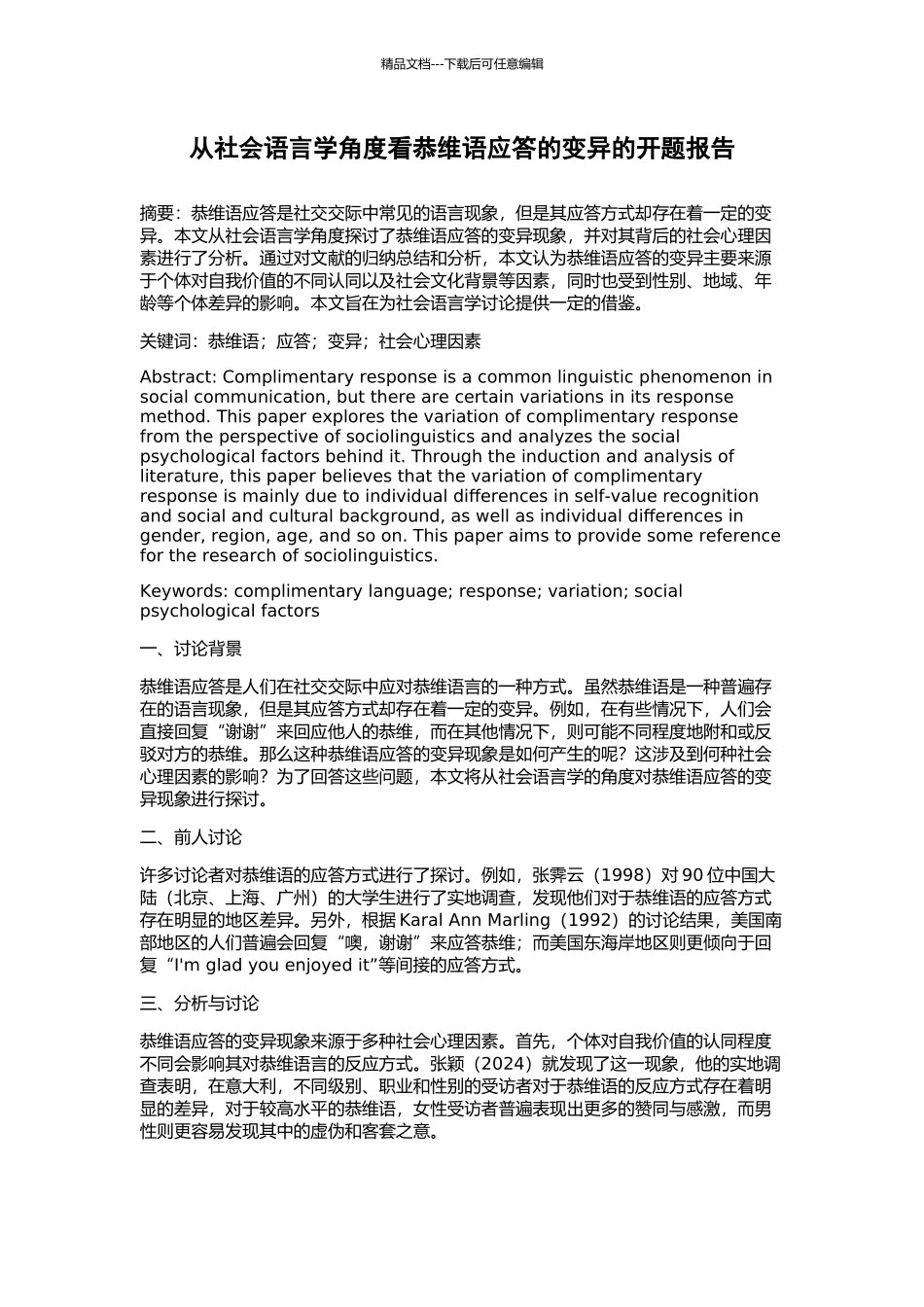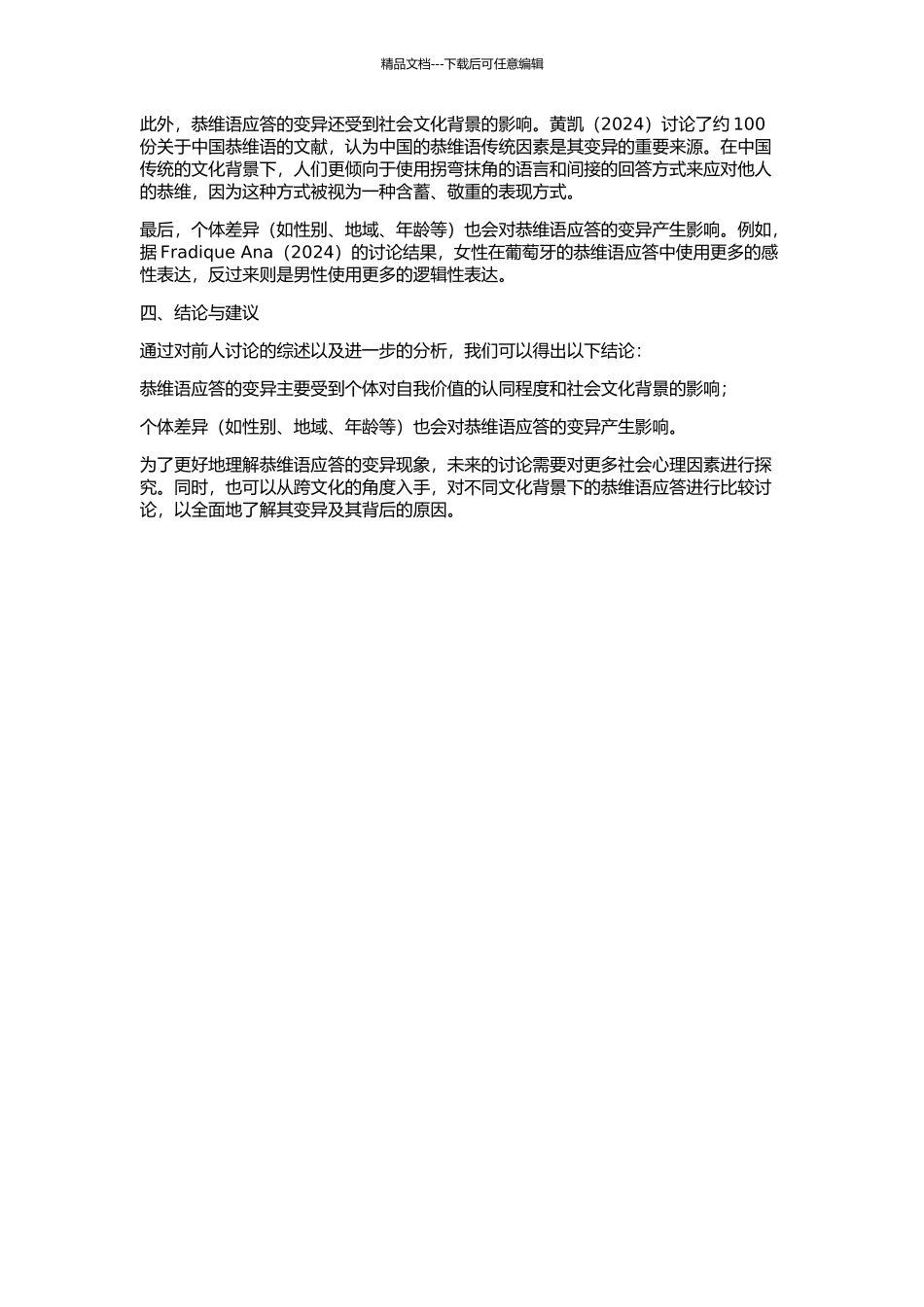精品文档---下载后可任意编辑从社会语言学角度看恭维语应答的变异的开题报告摘要:恭维语应答是社交交际中常见的语言现象,但是其应答方式却存在着一定的变异。本文从社会语言学角度探讨了恭维语应答的变异现象,并对其背后的社会心理因素进行了分析。通过对文献的归纳总结和分析,本文认为恭维语应答的变异主要来源于个体对自我价值的不同认同以及社会文化背景等因素,同时也受到性别、地域、年龄等个体差异的影响。本文旨在为社会语言学讨论提供一定的借鉴。关键词:恭维语;应答;变异;社会心理因素Abstract: Complimentary response is a common linguistic phenomenon in social communication, but there are certain variations in its response method. This paper explores the variation of complimentary response from the perspective of sociolinguistics and analyzes the social psychological factors behind it. Through the induction and analysis of literature, this paper believes that the variation of complimentary response is mainly due to individual differences in self-value recognition and social and cultural background, as well as individual differences in gender, region, age, and so on. This paper aims to provide some reference for the research of sociolinguistics.Keywords: complimentary language; response; variation; social psychological factors一、讨论背景恭维语应答是人们在社交交际中应对恭维语言的一种方式。虽然恭维语是一种普遍存在的语言现象,但是其应答方式却存在着一定的变异。例如,在有些情况下,人们会直接回复“谢谢”来回应他人的恭维,而在其他情况下,则可能不同程度地附和或反驳对方的恭维。那么这种恭维语应答的变异现象是如何产生的呢?这涉及到何种社会心理因素的影响?为了回答这些问题,本文将从社会语言学的角度对恭维语应答的变异现象进行探讨。二、前人讨论许多讨论者对恭维语的应答方式进行了探讨。例如,张霁云(1998)对 90 位中国大陆(北京、上海、广州)的大学生进行了实地调查,发现他们对于恭维语的应答方式存在明显的地区差异。另外,根据 Karal Ann Marling(1992)的讨论结果,美国南部地区的人们普遍会回复“噢,谢谢”来...

